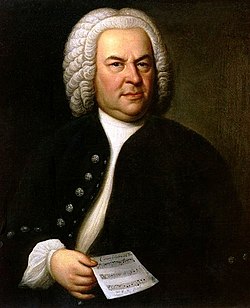Bach fans petition to rescue composer’s Weimar house from car park

Fans including Nobel prizewinner JM Coetzee petition to buy site where composer lived in his 20s – currently in use as a car park. Museums, archives, palaces and memorials are dotted around the German cultural city of Weimar celebrating famous writers Goethe and Schiller, Bauhaus painters Kandinsky and Klee and other important cultural figures over hundreds of years. But for one of Weimar’s most famous former residents, the composer Johann Sebastian Bach, it is a car park that stands on top of the place where he lived for more than 10 years.
A group of Bach fans now want to see that change and are campaigning to buy the site, under which the foundations of Bach’s house remain under heritage protection, and to rebuild the house the composer moved to with his pregnant wife when he was 23.
More than 11,000 supporters from round the world, including Nobel prizewinners Günter Blobel (for medicine) and JM Coetzee (for literature), have already signed the petition since it was put on change.org in eight languages.
“We had dialogue with the car park owners for about seven years… but not any more,” Myriam Eichberger, a professor at the Liszt School of Music Weimar, who started the petition, told the Guardian. “There’s now stagnation in this situation.”
Until early 1989, the building that was Bach’s house was part of the Hotel Zum Erbprinzen. However, it was torn down months before the fall of the Berlin Wall on the orders of the East German government, according to the petition.
After changing owners several times, the site was eventually purchased in the early 1990s by the current owners. Schörghuber Holding based in Munich, and since then has provided about 70 car parking spaces.
Despite Eichberger lobbying the company, the authorities in Weimar, the wider Thuringia state and the federal government, she said she had failed to convince the owners to sell the land or to invest in rebuilding the house.
“This project is not only a charismatic cultural venue with great touristic and economic potential, but also the last remaining large [empty space] from World War II bombing in the centre of a historic Unesco World Heritage [site],” reads the petition.
Bernhard Taubenberger, a spokesman for Schörghuber, told the Guardian the company had a lot of sympathy for the project and “great respect” for the association formed by Eichberger. However, he added that the site provided “indispensable” parking for the firm’s Hotel Elephant and the only place for possible future extensions.
Sites dedicated to Bach can be found in Eisenach, where the composer was born in 1685, and Leipzig, where he spent more than 25 years before his death in 1750. However, it is Weimar, where the composer was heavily influenced by Italian music and developed the style he then kept for the rest of his life.
“The Weimar years were important for his whole life,” she said. “All he did in Leipzig and Köthen was based on his time in Weimar.”
But despite Bach having composed a number of orchestral and organ works in the city and it being the birthplace of two of his most famous sons, Wilhem Friedemann Bach and Carl Philipp Emanuel Bach, both composers, relatively little is known about Bach’s time in Weimar.
Eichberger attributes the lack of knowledge to the longer period of time the composer spent in Leipzig and also to his “dishonourable” dismissal from the city.
“Bach was always in trouble with his boss, the duke, and searched for other work in Köthen where he signed a contract before he had cancelled the contract in Weimar,” she said. “In the Baroque times, that was usually punished by death, but he was instead sent to prison for five or six weeks before he was sent away in dishonour and many of the memories of him being there destroyed.”
Still, while there are no sites dedicated completely to the composer in the city, Bach is remembered every two years in Weimar through the Bach Biennale Weimar, which was founded by the Bach in Weimar Association in 2008.
Source: The Guardian


